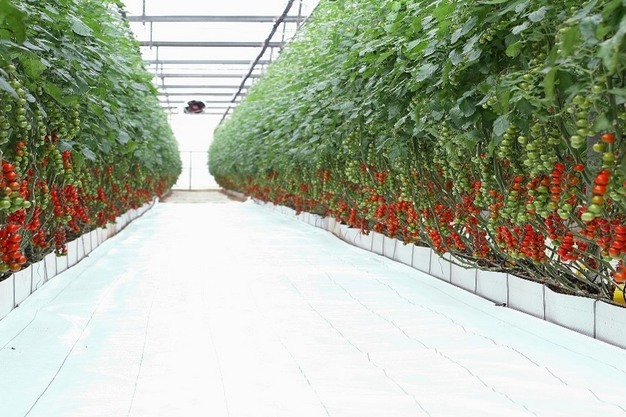The volumes of Spanish tomatoes, which fell below average in the first months of the campaign, are gradually increasing as the production is going in full swing in Almeria and Murcia, where the planting was delayed due to fear of the possible impact of high temperatures. Higher volumes are expected for the second half of the campaign and prospects are better than in other years.
“We've had several years of excessively warm autumns, with the consequent proliferation of pests and diseases. This, together with the overlap with the end of the campaign in the Netherlands and Belgium, has caused many headaches to tomato producers. As a result, this campaign, growers have planted about two weeks later for fear of another warm autumn,” says David Franco, commercial director of the Murcian Grupo Paloma.

However, temperatures have not been as high as expected, which has further accentuated this delay. In fact, according to David Franco, “there are areas in Murcia and Almeria where the production has not yet reached its peak.” This has resulted in low volumes during the first part of the campaign, in which “there has been no overlap with Dutch and Belgian productions, as well as less competition with Morocco, which has also had lower volumes. In short, there has been a positive market dynamic, both in terms of demand and prices.”
The weather conditions have so far been ideal for tomato plantations in Murcia. “We have had mild average temperatures and hardly any humidity, which has resulted in tomatoes of quite high quality. Volumes are already about 10% higher compared to those at the end of 2023. The prospects for this second part of the campaign are good. We will have more volumes and quality is also assured,” says the company's commercial director.
“It should also be recalled that we are facing the challenge of falling consumption, which has also slightly affected fruit and vegetable sales. 2023 came to a close with a halt in the growth that had been observed in previous years, both in the EU and in the UK,” says David Franco. “We are now entering a period in which we hope that consumption will be better. With proper planning and good coordination with the sales channels, we should manage to market all the volumes we will have in the coming months.”
Grupo Paloma expects to produce between 40 and 42 million kilos of tomatoes this campaign, in which it will continue to diversify with specialty varieties and varieties with resistance to the rugose virus. “We are investing a lot and adapting our cultivation structures to be able to face and mitigate the impact of climate change on crops, as well as to have the ability to produce all year round. The rugose virus is another great cause for concern for this sector and we continue conducting tests with resistant varieties. We estimate that, in about five years, we will have commercial varieties resistant to the rugose virus that will also meet our standards in terms of taste, quality and productivity.”
 For more information:
For more information:
David Franco
Grupo Paloma
T: +34 968590001
[email protected]
www.gpaloma.com
